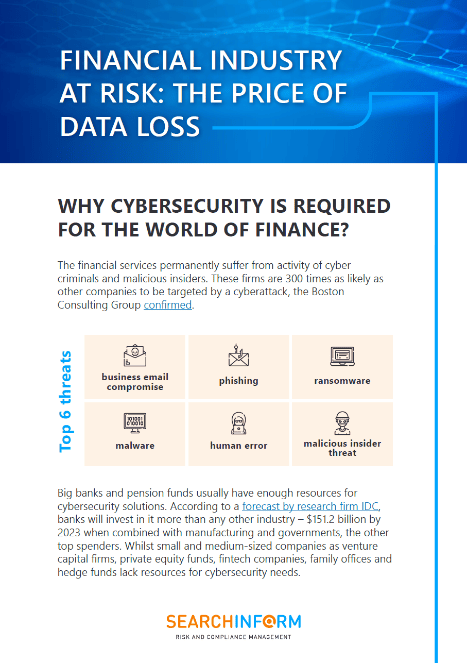The Essentials of PCI Compliance Reporting
Understanding PCI Compliance Reporting
PCI compliance reporting refers to the process of documenting and assessing an organization's adherence to the Payment Card Industry Data Security Standard (PCI DSS). It involves the collection, analysis, and documentation of evidence demonstrating that the organization's systems, processes, and controls meet the requirements outlined in the PCI DSS.
PCI compliance reporting typically includes:
- Documentation of Policies and Procedures: This involves maintaining written policies and procedures that outline how the organization handles payment card data and complies with PCI DSS requirements.
- Assessment of Security Controls: Organizations must conduct regular assessments to evaluate the effectiveness of their security controls in protecting cardholder data. This may include vulnerability scans, penetration tests, and other security assessments.
- Documentation of Compliance Status: Organizations must document their compliance status with PCI DSS standards, including any gaps or deficiencies identified during assessments and plans for remediation.
- Submission of Compliance Reports: Depending on the organization's size and the volume of card transactions processed, they may be required to submit compliance reports to relevant parties, such as payment card networks or acquiring banks.
- Evidence Retention: Organizations must maintain records and evidence of their compliance efforts, including assessment results, policies and procedures, and documentation of remediation activities.
Brief Overview of PCI DSS Standards
The Payment Card Industry Data Security Standard (PCI DSS) comprises a comprehensive set of security standards aimed at safeguarding payment card data. With its inception, PCI DSS sought to establish a unified framework to address the growing threat landscape surrounding electronic transactions. At its core, PCI DSS encompasses 12 high-level requirements, each designed to fortify different aspects of data security and integrity. These requirements span across six core control objectives, emphasizing the importance of building and maintaining a secure network, protecting cardholder data, and implementing stringent access controls. Additionally, PCI DSS mandates the establishment of a vulnerability management program, ensuring regular monitoring and testing to identify and remediate potential weaknesses. Through the adoption of strong security measures, organizations can uphold compliance with PCI DSS, bolstering trust among consumers and stakeholders. As technology evolves and threats evolve alongside, PCI DSS remains a cornerstone of the payment card industry, providing a roadmap for robust cybersecurity practices and risk management strategies.

Importance of PCI Compliance Reporting
PCI compliance reporting acts as a roadmap for businesses to navigate the complex landscape of payment card security. It serves as a cornerstone for assessing the effectiveness of security measures in place, identifying vulnerabilities, and implementing remediation strategies where necessary. Furthermore, PCI compliance reporting fosters transparency and accountability within organizations, demonstrating a commitment to maintaining the highest standards of data protection and security. In an increasingly interconnected and digital world, where cyber threats loom large, PCI compliance reporting serves as a shield against potential breaches and unauthorized access to sensitive financial information. It not only mitigates the risk of financial losses but also helps safeguard the reputation and trust of customers and stakeholders. Ultimately, PCI compliance reporting is not just a regulatory requirement but a strategic imperative for businesses seeking to thrive in today's dynamic and ever-evolving payment ecosystem.
Challenges in PCI Compliance Reporting
Navigating the landscape of PCI compliance reporting poses several challenges for businesses. One significant obstacle is the complexity of the PCI DSS standards themselves, which consist of multiple requirements spanning various aspects of security. The interpretation and implementation of these standards can be daunting, especially for organizations with limited resources or expertise in cybersecurity. Additionally, the dynamic nature of technology and evolving cyber threats present ongoing challenges in maintaining compliance. As new vulnerabilities emerge and security best practices evolve, businesses must continually adapt their security measures to mitigate risks effectively.
detects incidents and performs
The system identifies:
Another challenge is the sheer volume of data involved in PCI compliance reporting. Businesses that process large volumes of payment card transactions must contend with vast amounts of data, including logs, audit trails, and security event information. Managing and analyzing this data to demonstrate compliance can be resource-intensive and time-consuming, particularly without robust tools and processes in place.
The need for coordination and collaboration across different departments and stakeholders within an organization adds complexity to PCI compliance reporting. Achieving compliance requires cooperation between IT teams responsible for implementing security controls, finance departments handling payment processing, and compliance officers overseeing regulatory requirements. Effective communication and coordination among these stakeholders are essential to ensure that all aspects of PCI compliance reporting are addressed comprehensively.
For organizations operating in multiple geographic regions or industries, navigating the nuances of regional regulations and industry-specific requirements can further complicate PCI compliance reporting efforts. Balancing the need to comply with PCI DSS standards while also adhering to local laws and regulations adds an additional layer of complexity to the reporting process.
The challenges in PCI compliance reporting stem from the complexity of standards, the volume of data involved, the need for coordination among stakeholders, and the evolving nature of technology and cyber threats. Overcoming these challenges requires a concerted effort, robust processes, and a commitment to maintaining the highest standards of security and data protection.
Best Practices for PCI Compliance Reporting
Achieving PCI compliance reporting excellence entails adhering to several best practices to ensure the effectiveness and efficiency of the process. Let’s name a few:
Establishing clear policies and procedures is paramount: documenting comprehensive policies that outline how payment card data is handled, processed, and protected sets the foundation for compliance reporting. These policies should be regularly reviewed and updated to reflect changes in technology, regulations, and business practices.
Conducting regular security assessments and audits is essential: implementing scheduled vulnerability scans, penetration tests, and audits helps identify weaknesses and gaps in security controls. These assessments should be performed by qualified professionals and followed by prompt remediation of any issues discovered.
Maintaining meticulous documentation is key: keep detailed records of compliance efforts, assessment results, and remediation activities. Having comprehensive documentation not only demonstrates compliance but also serves as evidence in the event of an audit or investigation.
Fostering a culture of security awareness and training among employees is critical: educate staff on security best practices, the importance of PCI compliance, and their role in protecting payment card data. Regular training sessions and awareness campaigns help instill a security-conscious mindset throughout the organization.
Leveraging technology solutions can streamline PCI compliance reporting processes: invest in tools and systems that automate data collection, analysis, and reporting. These solutions can help reduce manual effort, improve accuracy, and enhance the overall efficiency of compliance reporting efforts.
Ensure ongoing monitoring and continuous improvement: implement robust monitoring mechanisms to detect and respond to security incidents promptly. Regularly review and update security controls to address emerging threats and vulnerabilities.
Maintain open communication and collaboration with stakeholders: establish clear lines of communication between IT teams, compliance officers, executive leadership, and external partners involved in PCI compliance efforts. Effective communication fosters alignment, cooperation, and accountability across the organization.
By following these best practices, businesses can streamline PCI compliance reporting processes, strengthen security posture, and mitigate the risk of data breaches and non-compliance penalties.
and perform with SearchInform DLP:
Future Trends in PCI Compliance Reporting
Looking ahead, the future of PCI compliance reporting is likely to be influenced by several emerging trends. Automation and artificial intelligence (AI) are poised to play increasingly pivotal roles in streamlining compliance processes. Organizations will harness AI-driven tools to automate data collection, analysis, and reporting, enabling more efficient and accurate compliance assessments.
Continuous compliance monitoring is set to become the norm, replacing traditional periodic assessments. This shift towards real-time monitoring allows organizations to promptly detect and address security issues, bolstering their overall security posture. Additionally, integration with DevSecOps practices will ensure that security is ingrained throughout the software development lifecycle, minimizing vulnerabilities and enhancing compliance.
Cloud security will remain a focal point, with organizations adopting cloud-specific security controls and reporting mechanisms. As cloud adoption continues to soar, ensuring PCI compliance in cloud environments will be paramount. This entails leveraging cloud-native security tools, implementing robust encryption and access controls, and conducting thorough cloud-specific compliance assessments.
The rise of zero-trust security models will also shape future compliance reporting practices. Organizations will adopt a more granular approach to access controls, implementing least privilege principles and micro-segmentation to limit access to sensitive data. Compliance reporting will underscore the importance of identity and access management in maintaining PCI DSS compliance.
Regulatory evolution will drive changes in compliance reporting requirements. New regulations may introduce additional mandates or expand the scope of existing standards, necessitating adjustments to compliance reporting processes. Organizations must remain agile and adaptive, ensuring alignment with evolving regulatory landscapes while maintaining adherence to PCI DSS standards.
Future trends in PCI compliance reporting will be characterized by automation, continuous monitoring, cloud security, zero-trust principles, and regulatory evolution. Organizations that embrace these trends will be better equipped to navigate the complexities of compliance reporting and safeguard sensitive cardholder data effectively.
Achieving PCI Compliance with SearchInform Solutions
SearchInform solutions offer several benefits in achieving PCI compliance:
Data Discovery and Classification: SearchInform solutions provide advanced data discovery and classification capabilities, enabling organizations to identify and classify sensitive payment card data stored across their IT infrastructure. This functionality helps organizations understand the scope of their PCI compliance requirements by identifying where cardholder data resides.
Real-Time Monitoring and Alerts: SearchInform solutions offer real-time monitoring and alerts for unauthorized access or suspicious activities related to payment card data. By continuously monitoring user behavior and data access patterns, organizations can detect potential security incidents and breaches promptly, enabling them to take immediate action to mitigate risks and maintain PCI compliance.
Data Loss Prevention (DLP): SearchInform solutions include robust data loss prevention (DLP) features designed to prevent unauthorized disclosure or leakage of payment card data. These solutions can enforce policies to control the movement of sensitive data, whether it's being transferred within the organization's network, stored on endpoints, or accessed by authorized users.
User Activity Monitoring: SearchInform solutions offer comprehensive user activity monitoring capabilities, allowing organizations to track and audit user actions related to payment card data. By monitoring user activities such as file access, data transfers, and system logins, organizations can ensure compliance with PCI DSS requirements for access control and accountability.
Comprehensive Reporting: SearchInform solutions provide detailed reporting capabilities, enabling organizations to generate comprehensive reports on their compliance status and security posture. These reports can include information on data discovery and classification results, security incidents, compliance violations, and remediation efforts, helping organizations demonstrate compliance to auditors and regulators.
Integration and Scalability: SearchInform solutions are designed to integrate seamlessly with existing IT infrastructure and scale to meet the needs of organizations of all sizes. Whether deployed on-premises or in the cloud, these solutions can be tailored to fit the unique requirements of each organization, providing flexibility and scalability as compliance needs evolve.
SearchInform solutions offer a powerful suite of tools and capabilities to help organizations achieve and maintain PCI compliance effectively. By leveraging advanced data discovery, monitoring, and reporting features, organizations can enhance their security posture, mitigate risks, and demonstrate compliance with PCI DSS standards.
Ready to strengthen your organization's PCI compliance efforts? Explore the powerful capabilities of SearchInform solutions today and take proactive steps to safeguard sensitive payment card data. Achieve peace of mind knowing that your organization is equipped with advanced data discovery, monitoring, and reporting tools to mitigate risks and maintain compliance with PCI DSS standards.
Extend the range of addressed challenges with minimum effort
Company news
SearchInform uses four types of cookies as described below. You can decide which categories of cookies you wish to accept to improve your experience on our website. To learn more about the cookies we use on our site, please read our Cookie Policy.
Necessary Cookies
Always active. These cookies are essential to our website working effectively.
Cookies does not collect personal information. You can disable the cookie files
record
on the Internet Settings tab in your browser.
Functional Cookies
These cookies allow SearchInform to provide enhanced functionality and personalization, such as remembering the language you choose to interact with the website.
Performance Cookies
These cookies enable SearchInform to understand what information is the most valuable to you, so we can improve our services and website.
Third-party Cookies
These cookies are created by other resources to allow our website to embed content from other websites, for example, images, ads, and text.
Please enable Functional Cookies
You have disabled the Functional Cookies.
To complete the form and get in touch with us, you need to enable Functional Cookies.
Otherwise the form cannot be sent to us.

Subscribe to our newsletter and receive a bright and useful tutorial Explaining Information Security in 4 steps!

Subscribe to our newsletter and receive case studies in comics!







